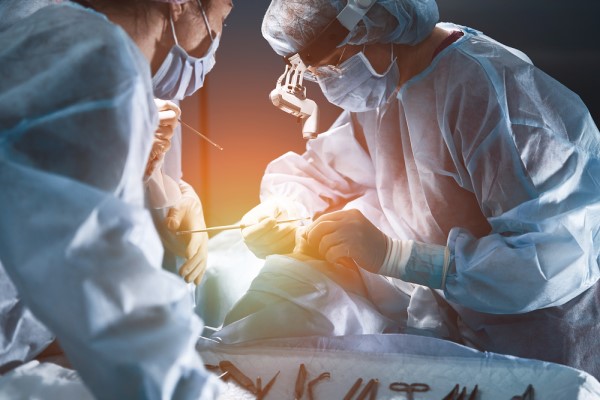What Is Reconstructive Plastic Surgery and When Is It Needed?

Reconstructive plastic surgery restores appearance and function to parts of the body affected by injury, illness, chronic medical conditions, burns, or traumatic injury. Numerous surgical procedures fall under the category of reconstructive surgery, and each corrects a specific kind of imperfection.
However, it often takes one or more procedures to correct a deformity, scar, or imperfection. So, in what kinds of situations does a person need reconstructive surgery?
What reconstructive plastic surgery can do
Reconstructive surgery is generally considered to be medically necessary. It forms part of a larger treatment plan to treat deformities and imperfections caused by injury, illness, congenital defects, and developmental abnormalities.
Many procedures fall under the umbrella of reconstructive surgery:
- Scar revision to reduce the prominence of scars after injury or illness
- Skin grafts to help patients who suffer from burns or other forms of skin loss or damage
- Facial reconstruction to repair damage caused by severe trauma to the face
- Orthopedic reconstruction to repair deformity caused by injury or illness
- Cleft palate repair, which improves the appearance and function of a person’s mouth
- Craniofacial reconstruction to correct injury or deformity caused by congenital or developmental abnormalities
- Breast reconstruction for patients who have gone through lumpectomies or mastectomies
- Excisions to remove cancerous skin cells
When does reconstructive surgery become a necessity?
Some patients need reconstructive surgery to live their everyday life. Suppose that a person has a cleft palate. They may have problems with talking and eating. Their teeth typically will also not grow well, and they may be prone to chronic infections. They can be helped by cleft palate reconstruction, which creates the standard connections that the palate should have in the mouth.
Similarly, a person with a bone disorder that has deformed their leg could benefit from orthopedic reconstruction. Surgical intervention can restore function to the leg, and physical therapy can improve the person’s gait and mobility.
Trauma to the face sometimes results in damaged nerves, bones, and soft tissue. The face may have scarring and structural deformity. If a person suffers nerve damage to the face, they will likely suffer from some form of paralysis, which may cause difficulties with speaking, smiling, and eating. A plastic surgeon can create a treatment plan to reverse as much of the damage as possible and restore the appearance and function of the patient's face.
Frequently asked questions about reconstructive surgery
Many people are thinking about getting reconstructive surgery. Here are answers to common concerns and questions that patients have.
Q: What is reconstructive plastic surgery?
A: Reconstructive plastic surgery is a type of surgery that helps improve function and appearance. It can be done on any part of the body but is commonly done on the face, hands, and breasts.
Q: Who is a good candidate for reconstructive plastic surgery?
A: Anyone with a deformity or disfigurement that causes functional or psychological problems may be a good candidate for reconstructive plastic surgery.
Q: What are popular procedures?
A: Common procedures include breast reconstruction following mastectomy, hand surgery to correct deformities caused by injuries, and facial reconstruction following trauma or cancer surgery.
Q: How long does it take to recover from reconstructive plastic surgery?
A: Recovery times vary depending on the type of procedure that was performed. Some people may be able to go back home the same day, while others may need to remain in the hospital for a few days. Patients should expect swelling and bruising after surgery, which can take several weeks to resolve.
Q: Are there any risks involved with reconstructive plastic surgery?
A: As with any type of surgery, risks are always involved. These include bleeding, infection, and reactions to anesthesia. However, serious complications are rare. The surgeon will discuss all potential risks with the patient before the procedure. Simple things like not consuming alcohol leading to the surgery date can help minimize the risk of complications.
Reconstructive surgery can help patients reclaim their lives
You may be suffering the effects of a congenital deformity, or the aftermath of a traumatic injury may have left a lingering imperfection. Any of these situations may be limiting your self-confidence. Reconstructive plastic surgery can help restore the part of your body that is affecting your everyday life. Contact us today to make an appointment with a plastic surgeon. During this initial consultation, you and the surgeon can discuss your goals and go over possible treatment plans.
Request an appointment here: https://www.paulcdillonmd.com or call Paul C. Dillon, MD Inc at (847) 429-3185 for an appointment in our Schaumburg office.
Check out what others are saying about our services on Yelp: Read our Yelp reviews.
Recent Posts
Choosing to undergo breast reduction surgery can provide much relief in more ways than one. However, there are a few things you must be aware of to have a smooth recovery phase, which happens to be split in two.Breast reduction recovery is largely split into phases– namely, the early phase and the later phase.The early…
If you are considering undergoing an eyelid lift, there are some things you need to do to prepare. This is an invasive surgical procedure that needs to be approached with care. The same goes for the recovery process. Here are seven preparation tips to ensure your procedure goes smoothly.Certain medications can cause issues during the…
One of the main concerns among individuals who are interested in plastic surgery is whether or not they can afford it. Unfortunately, many insurance policies do not cover elective plastic surgery, although there are times when plastic surgery might be paid for by insurance if there are health benefits.It is helpful to have a good…
Liposuction is a surgical solution for losing stubborn fat that does not respond to diet and exercise. Though not a weight loss treatment, this procedure can help patients get closer to their ideal body and tone up those last stubborn sections. However, those considering this procedure should work with a qualified plastic surgeon and know…


